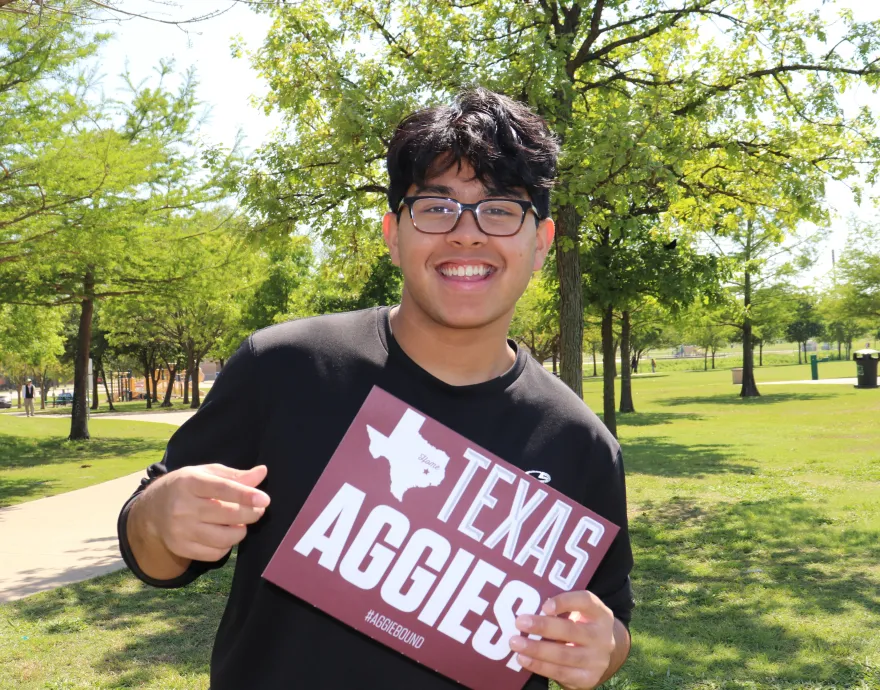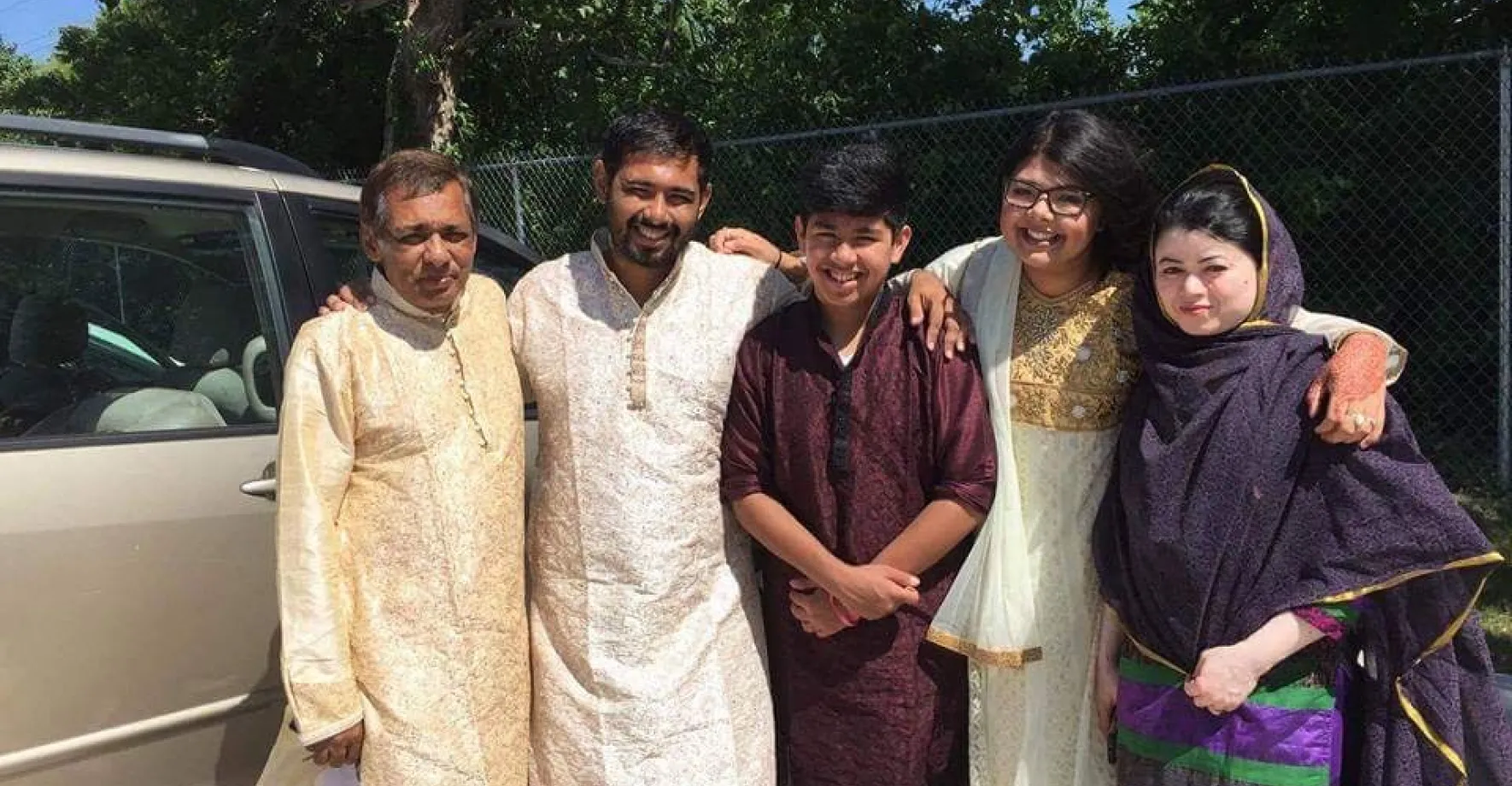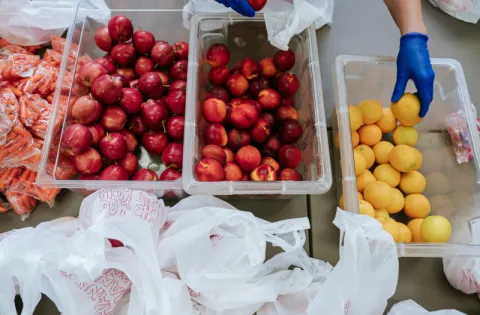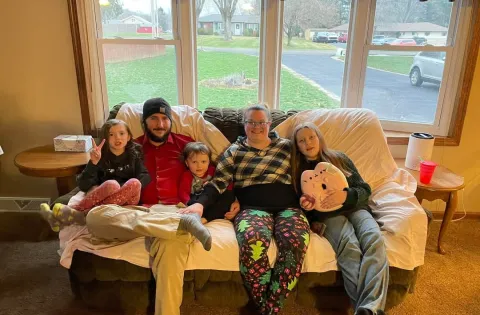In honoring AAPI Heritage Month, we are excited to share another story from a previous No Kid Hungry youth ambassador, Naimur Rahman, who served during the summer of 2021 in Dallas, Texas. Youth ambassadors are an amazing group of college students working across the country to end childhood hunger in their communities. Learn more about Naimur’s passion to help his community and what motivates him in relation to his AAPI background.
What were some of the highlights of your time as a youth ambassador?

We had multiple kick off events for summer meals. It was pretty fun seeing the kids play and seeing the smile on their faces and the excitement. Being able to give them food that they need, judgment free, I think was the best part of it all.
What motivated you to be a youth ambassador for No Kid Hungry?
No Kid Hungry has been a big staple in my life. I volunteered with the organization so much when I was in high school. Then last summer, which was my freshman year of college, I didn't have any internships lined up and I figured with my time I had, I would like to help in any way I can. Food security is a very important thing to me.
Can you speak about being a member of the AAPI community and the link to service?
My family is from Bangladesh. My parents moved here in 1999. I was born in 2001. My dad worked very hard to get a PhD from Japan. Being the first American born child, especially of AAPI heritage, you feel like you've won the lottery before you were even born. You think of the odds against the narrative that your parents tell you about how they're able to come to the country. This gave me motivation to work harder in school and to understand what I was working towards, helping fulfill the family dream in America and why they came here.
When I was younger and during the recession, my dad was laid off from his job. I was in second grade and after school, my sister and I would figure out ways to eat. She would help cook food or whatever was in the kitchen. There were struggling moments during those times because my parents weren't fully financially stable.
How do you remain connected to your AAPI culture?
Ramadan is a great aspect of that. We fast, which really shows how difficult it can be when you're not eating, which is the purpose of Ramadan - to feel what it's like to not have access to food. So many people go through that in this country and around the world.
Before the pandemic, I used to go to Friday prayer and go to the mosque to hear the various prayers. During my time in college, there are not a lot of people who are Bengali, so I don't really encounter people that are similar to me. At least when I'm back home with my family, I definitely try to connect to my culture anyway I can. I would like to visit my homeland of Bangladesh soon as the last time I was there was in the third grade.
What makes you proud to be a part of the AAPI community?
As a kid, the majority of the kids in my classes made me feel different. You want to feel the same as everybody else. But as I got older, I am more appreciative that my culture is not what everybody else has, and that sets me apart. Being different is a good thing. The sense and importance of family is strong within the AAPI community. For example, my parents truly care and are devoted towards my betterment and wellbeing wanting to see me succeed.

Why is a celebration like AAPI Heritage Month important? How will you be celebrating?
I wasn’t aware of the month in the prior years. It's really cool that now it's more at the forefront, with an overall increase in representation. I would like to use this month as an opportunity to learn more about various cultures within the AAPI landscape, outside of my own.
Who is your AAPI hero?
Kumail Nanjiani, an actor, has been a huge role model for me. He is a Muslim American and Pakistani. He has close resemblance to me in culture and seeing him on the big screen is a great feeling. I'm sure there are many kids that are similar to me and feel very excited seeing him in these big acting roles. It’s great for representation as a whole for both Muslim Americans and the AAPI commnity. Getting people of color, especially AAPI, into the current Hollywood landscape is very needed, as it's been lacking for so long. It feels like we're making good steps in the right direction for that.
What is next for you in your journey?
I'm a computer science major. I was really happy that I was able to do the youth ambassador internship and interact with so many people to see what their situations were like. With computer science, I still want to help others through technology. Being involved with food insecurity work, I hope it primes me for my future experiences and anything I'm willing to do in the computer science landscape.


